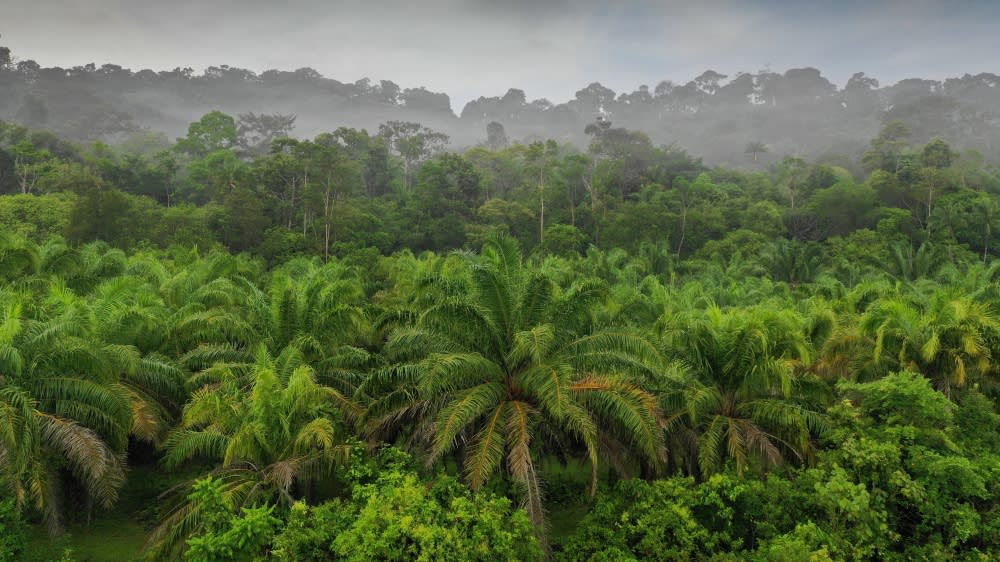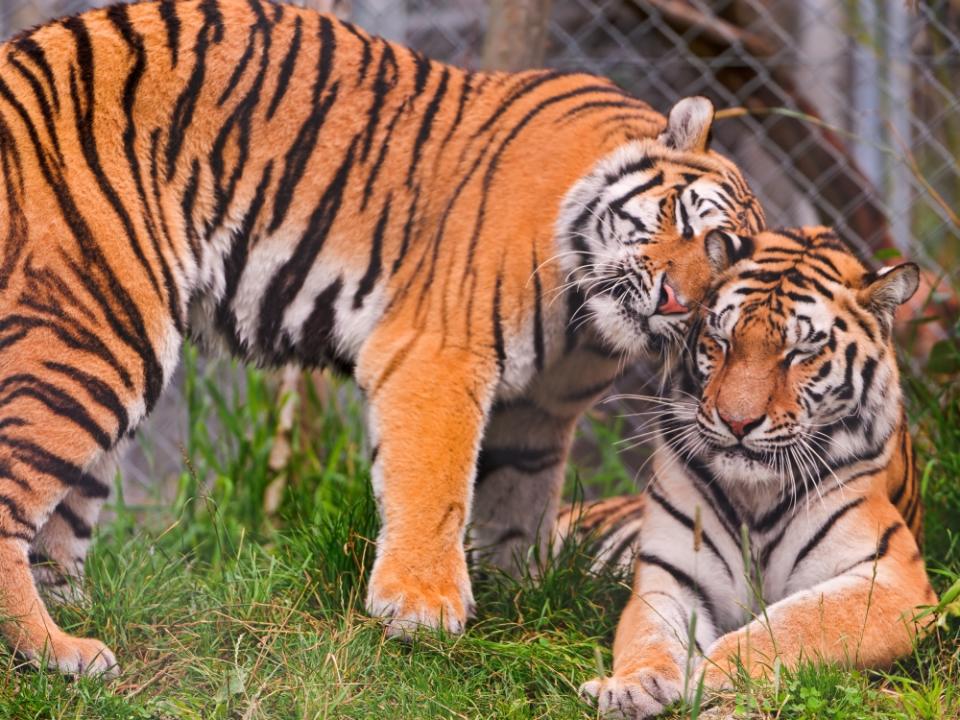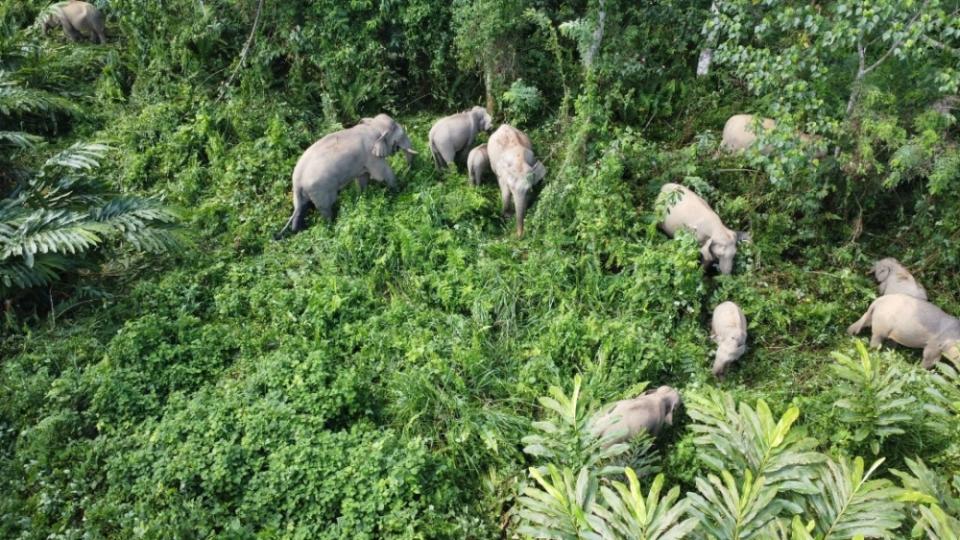How the Malaysian Palm Oil Green Conservation Foundation is playing its part to save the environment and wildlife

KUALA LUMPUR, March 16 — When it comes to the environment, we are often bombarded by the sounds and images of machines clearing trees.
Empty plots of jungles or forests that have been cleared to make way for development.
And animals like the Pygmy Elephant, Orangutan and Malayan Tiger are losing their homes.
These sad images say it all.
That is the price one pays for development.
The topic of saving the environment has been ongoing for the past few decades.
For those in the palm oil industry, the players have continuously been doing its part to conserve biodiversity and the environment due to concerns over how activity has driven deforestation in biodiverse forests.
Another concern is the effects the industry has of threatening already endangered species such as the Pygmy Elephant, Orangutan and Malayan Tiger.
In this country, there is the Malaysian Palm Oil Green Conservation Foundation (MPOGCF) that seeks to initiate, collaborate and support environmental and conservation projects related to the Malaysian palm oil industry.
It also strongly supports the sustainable practices within the industry with strong commitment and networking with various stakeholders towards a sustainable future.
Besides replanting trees, it also supports conservation projects that aims to help the “Other Malayisans”, referring to the animals affected.
The idea for the foundation was mooted by the Plantation Industries and Commodities Ministry in 2021 and subsequently supported conservation initiatives related to the palm oil industry and to prove the commitment of the industry towards conserving our environment.
Since 2006, the Malaysian Palm Oil Wildlife Conservation Fund (MPOWCF) which was managed by the Malaysian Palm Oil Council (MPOC) has completed 29 conservation projects.
MPOWCF was later upgraded to MPOGOF in 2021.
The stakeholders include the Sabah Forestry Department (SFD), Sabah Wildlife Department (SWD), Sarawak Forestry Corporation (SFC), Department of Wildlife and National Parks (Perhilitan) Peninsular Malaysia, Academia (Unimas, USM, Cardiff University and UiTM), NGOs (HUTAN, DGFC, Wild Asia), and Malaysian palm oil industry members.
When it comes to saving the wildlife in Malaysia, MPOGCF has a few initiatives to save those who are the most impacted.
Elephant Grass Planting Project (Napier Grass), Brumas, Sabah
This is a habitat enrichment project to encourage the use of wildlife corridors by elephants.
It is also hoped the establishment of these wildlife corridors, the elephant would spend more time in the corridor, rather than in the oil palm plantations.
It is meant to reduce human-elephant conflicts in oil palm plantation landscapes and eventually co-exist with the elephants.
In addition to this, the corridors are also meant to reconnect Ulu Kalumpang Forest Reserve and Ulu Segama Forest Reserve.
This project was an initiative in collaboration with MPOGCF, Sabah Wildlife Department, Sabah Softwood Berhad and Borneo Rhino Alliance (Bora) as consultants for this project.

The Malaysian palm oil industry, through MPOGCF, fully supports efforts to increase the population of Malayan Tigers. — Picture courtesy of MPOGCF
Malayan Tiger Conservation Programme
The nation’s palm oil industry is very committed toward the conservation of Malayan Tiger in Malaysia.
The MPOGCF has spent millions to support the National Tiger Conservation Action Plan.
The foundation has signed a MoU with Perhilitan to work together on a five-year project to breed captive Malayan Tiger ex-situ in National Wildlife Rescue Centre (NWRC).
The cubs are then released to the wild after a three year rewilding process at the National Tiger Conservation Centre (NTCC).
This is expected to increase the population of the Malayan Tiger in Malaysia.
The locations for this project are in National Wildlife Rescue Centre, Sungkai, Perak & National Tiger Conservation Centre, Kuala Gandah, Pahang.
An MoU involving Perhilitan, the Malaysian Palm Oil Council (MPOC) and MPOGCF was signed on April 12, 2021 with the Plantation Industries and Commodities Ministry regarding the issue at the NWRC.
The involvement of all stakeholders when it comes to the government’s efforts to create awareness about the poaching of endangered species such as the Malayan Tiger.
Among the long-term and short-term conservation plans for Malayan Tiger include:
Malayan Tiger breeding programme
A programme supporting the cost of five Malayan Tiger cubs
Transferring Malayan Tigers to the NTCC in Lanchang, Pahang
The rewilding of Malayan Tigers
Releasing Malayan Tigers into the wild
Post-release monitoring of Malayan Tigers
The MoU also allocated RM3 million for a period of five years for the conservation of Malayan Tigers.
It is based on MPOC and MPOGCF initiatives to show the strong commitment shown by the palm oil industry to save the Malayan Tiger.
The centre also acts as a sanctuary for wildlife injured as a result of human-wildlife conflict in the country.
It is hoped that initiatives such as these will help steer the Malaysian palm oil industry in the right direction towards conserving and serving the environment.

Routes for wildlife, especially elephants, are needed to better manage the biodiversity within and around the plantations. — Picture courtesy of MPOGCF
Wildlife Rescue Unit (WRU)
The unit was established in 2010 in response to the increasing need to rescue and translocate injured or displaced animals in Sabah.
The WRU has the full support of the palm oil industry through the MPOGCF.
Its scope of work includes resolving human wildlife conflicts through rescue and translocation, wildlife research projects, wildlife enforcement operations and increasing public awareness through press releases, exhibitions and school visits.
Since its inception, the WRU has attended to more than 2,700 wildlife operations with more than 5,000 wild animals rescued, translocated or managed.
This includes 314 Bornean elephants, 61 Bornean orangutan, 39 proboscis monkeys, 16 gibbons, 144 estuarine crocodiles, 19 Malayan sun bears and 2,698 long and pig-tailed macaques.
Other animals are 43 samba deers, four clouded leopards, 77 marine turtles, eight marine mammals and 43 pangolins.



